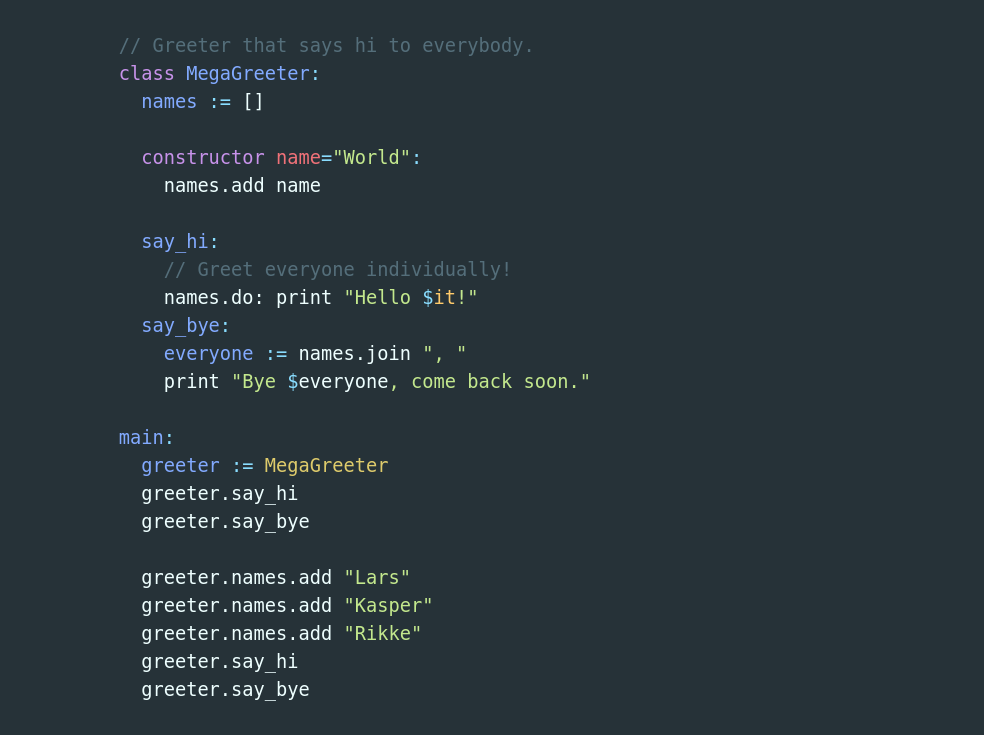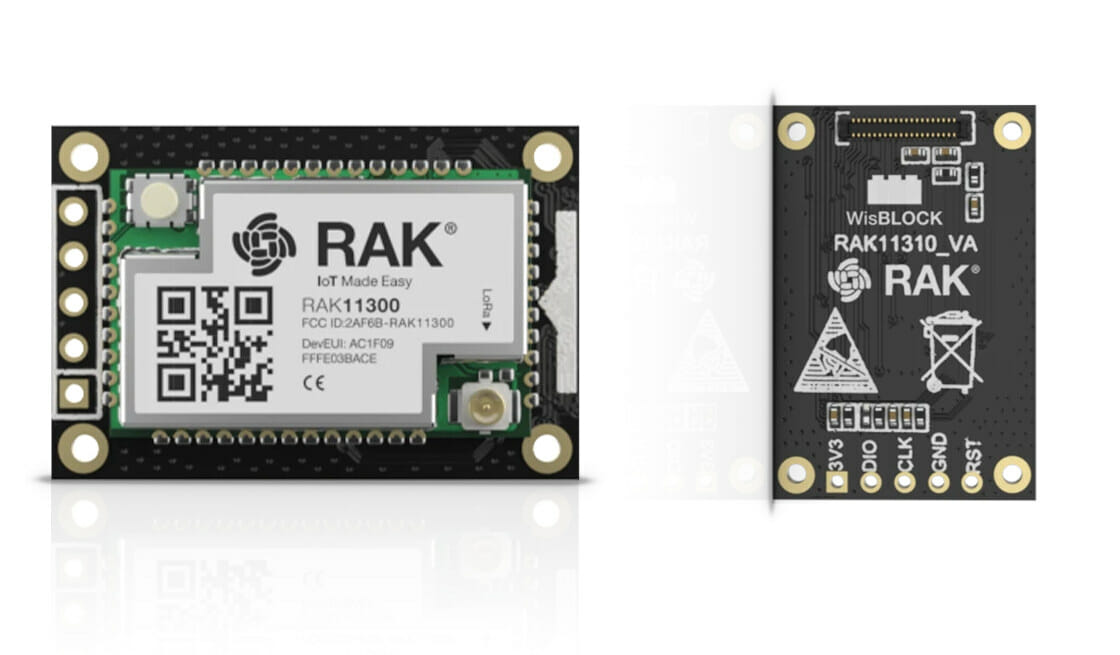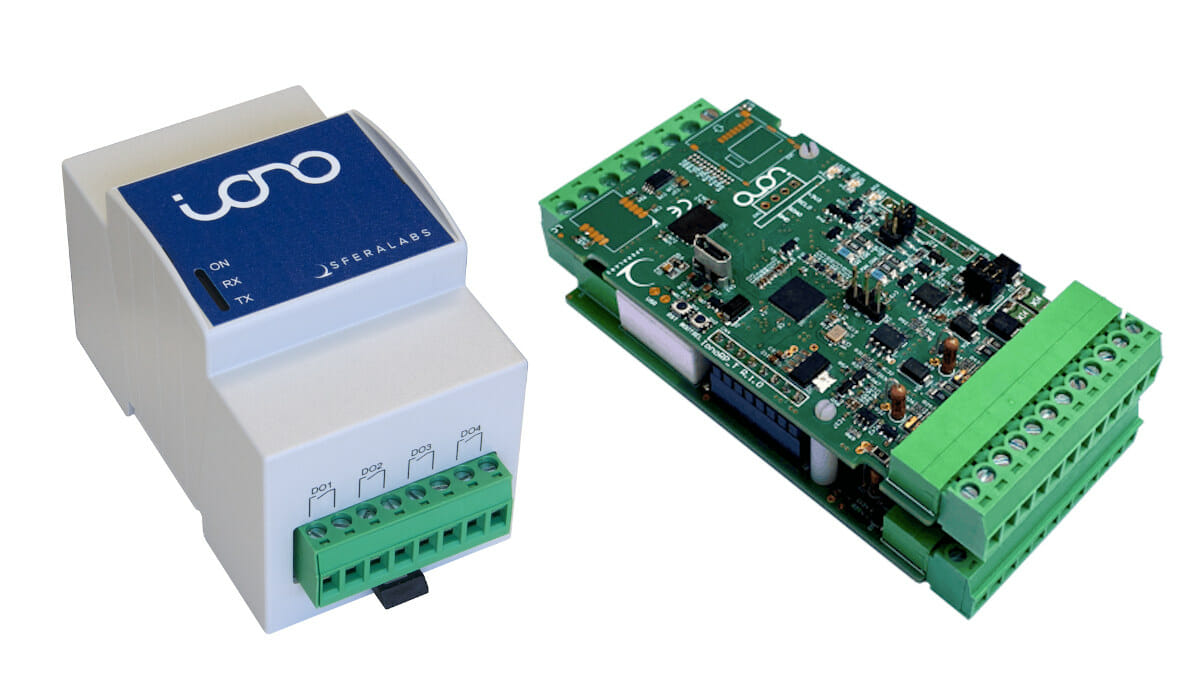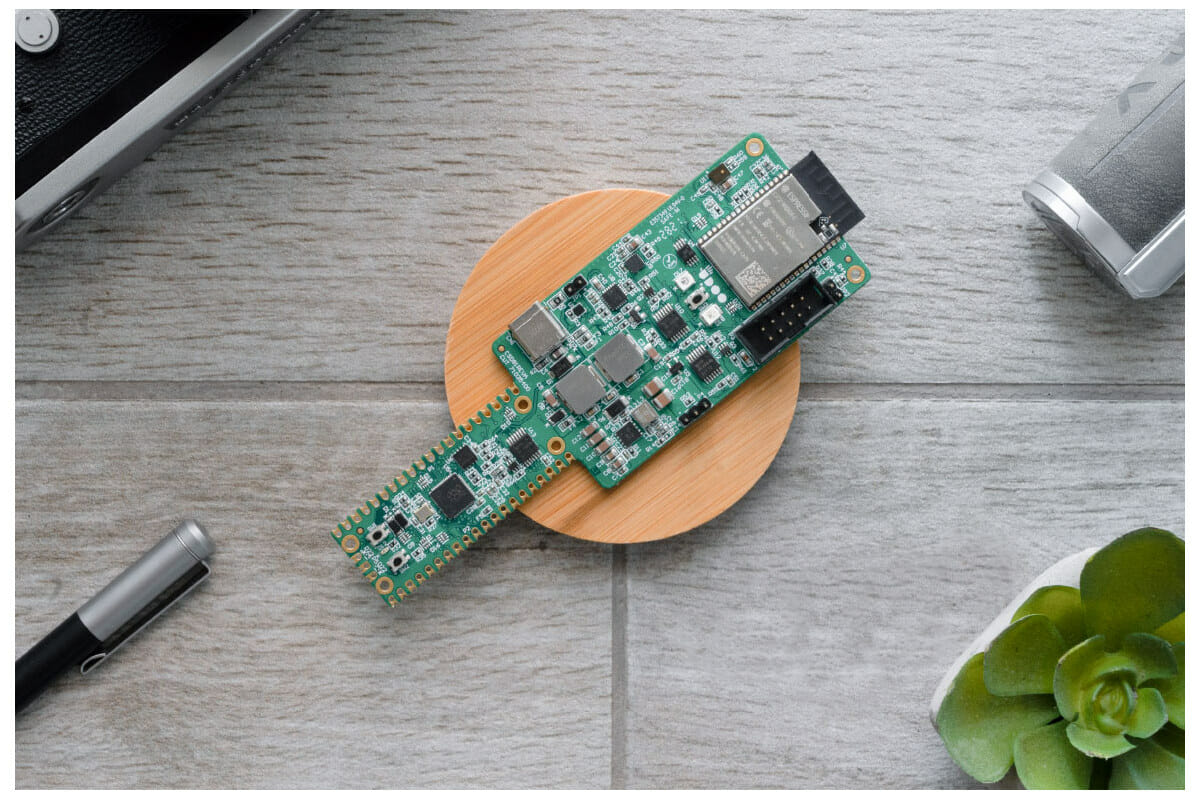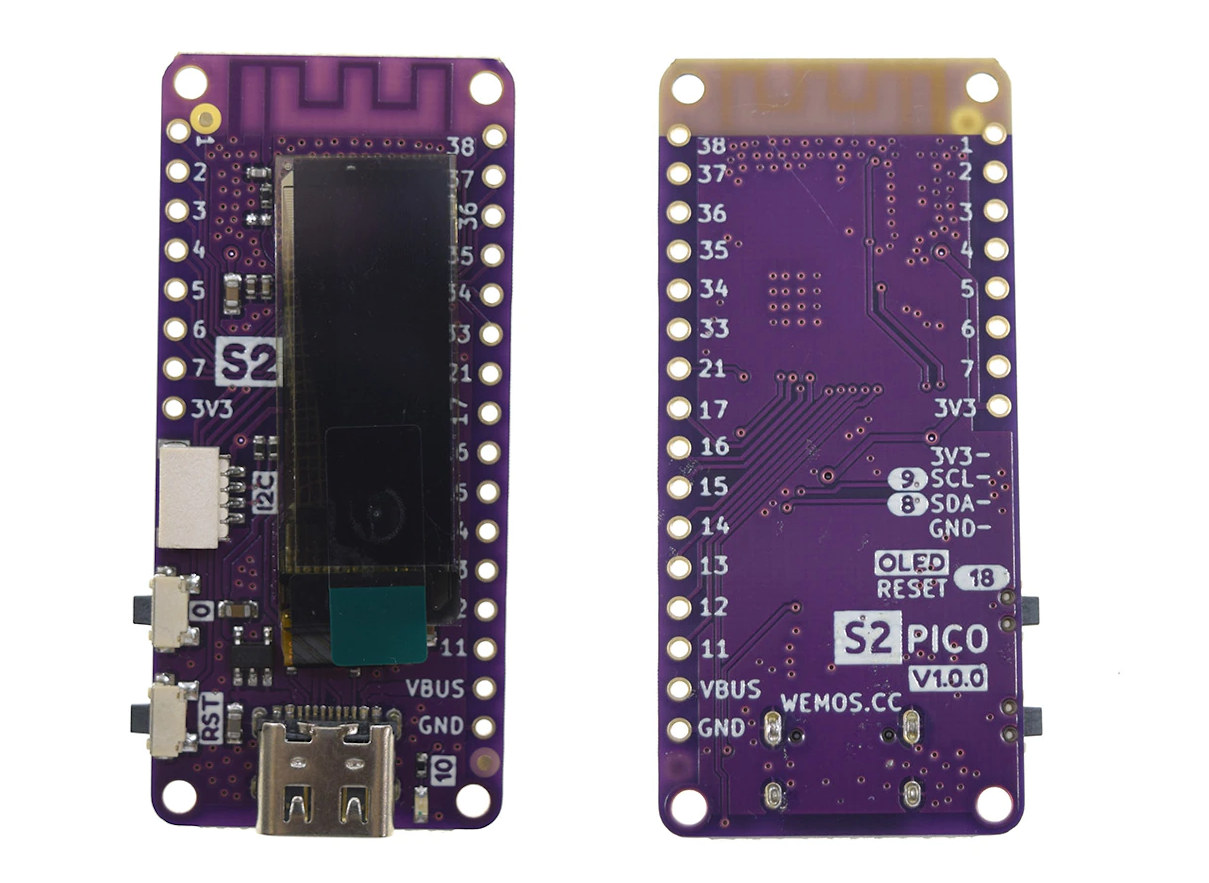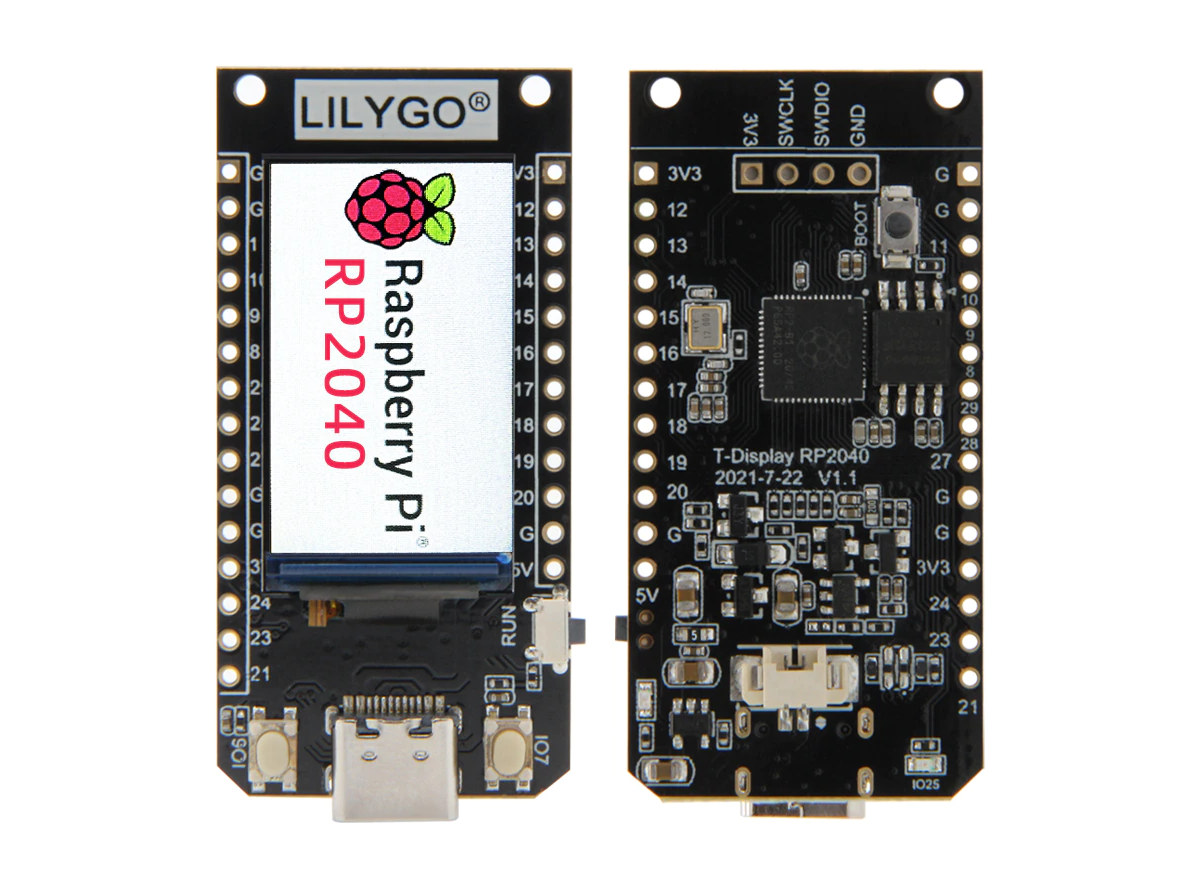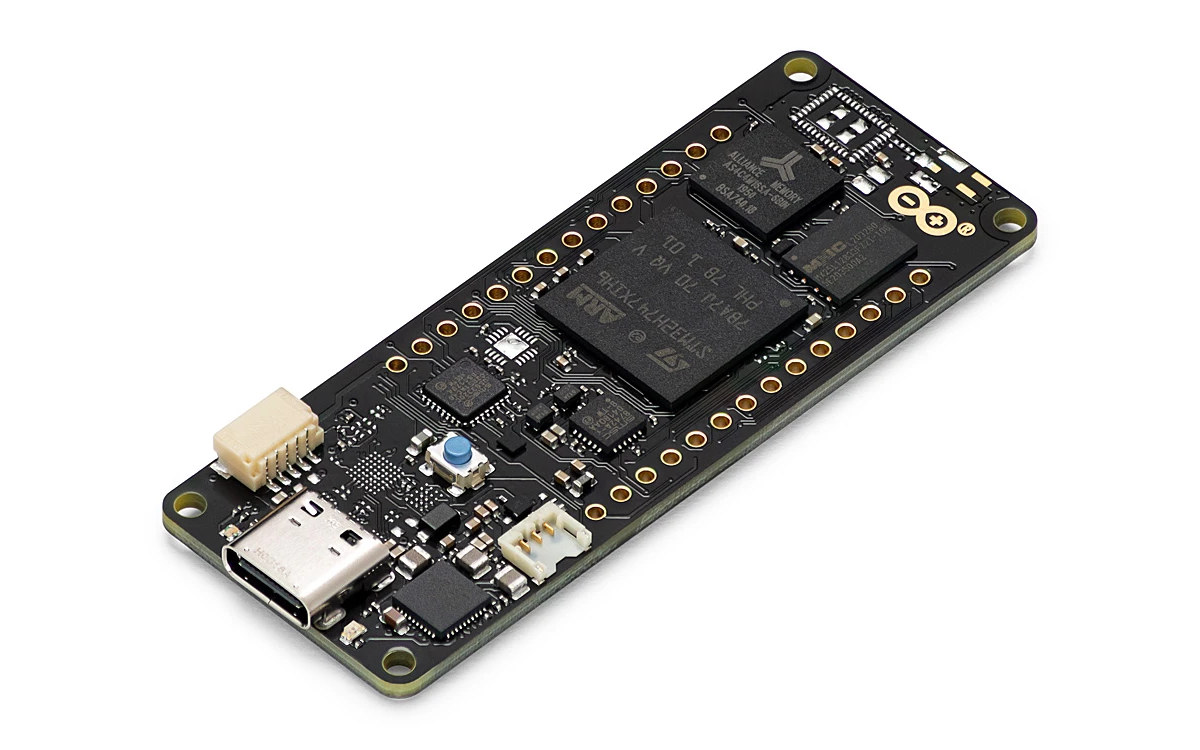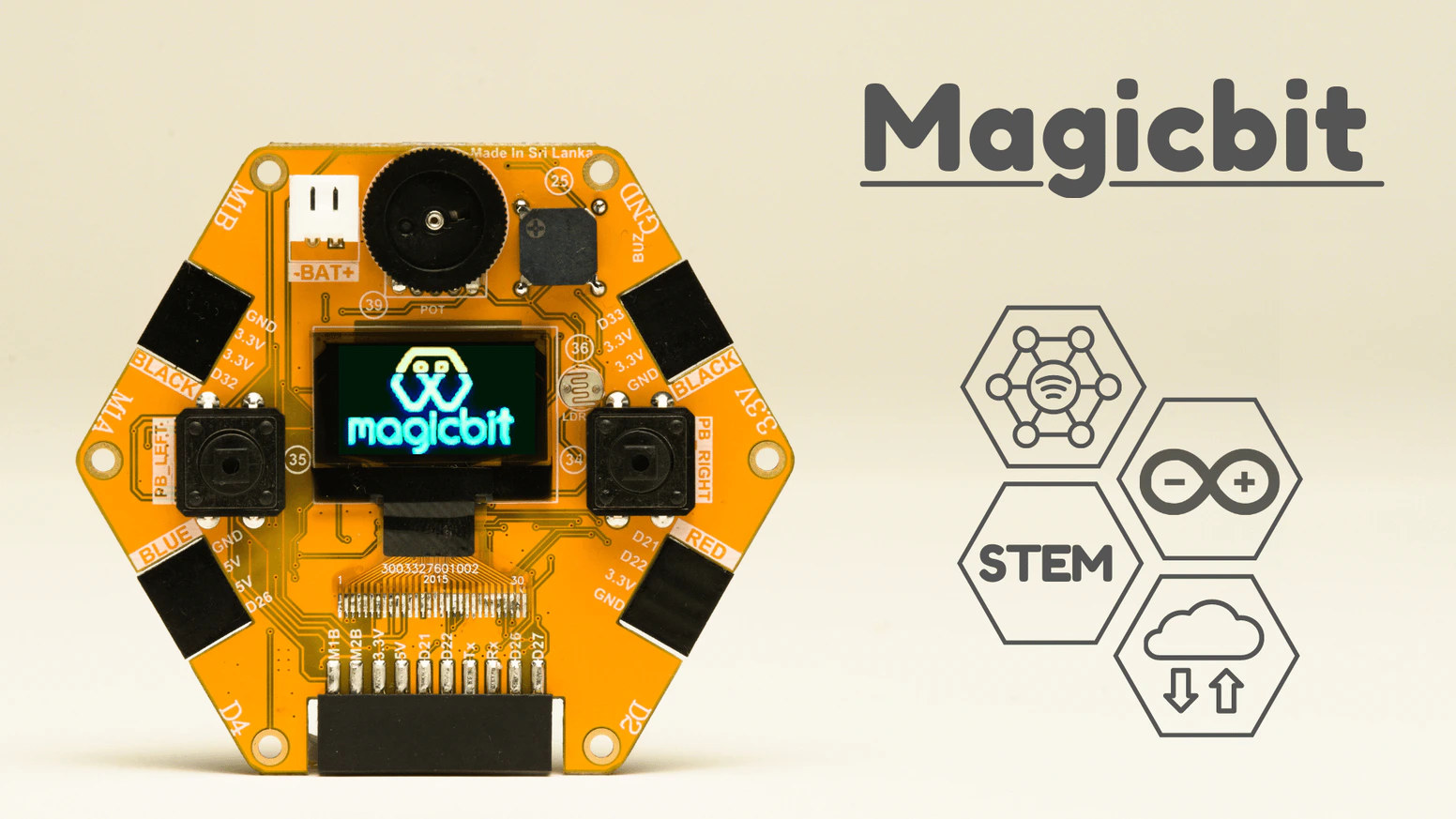Developed by a team of former Google employees, Toit is a complete IoT platform with remote management, firmware updates for fleets of devices with features similar to the one offered by solutions such as balena, Microsoft Azure, or Particle edge-to-cloud platform. Toit currently works on ESP32 microcontrollers using lightweight containers, and after seeing existing high-level languages MicroPython and Javascript were not fast enough on low-end microcontrollers platforms, the team at Toit started to develop the Toit language in 2018, and has just made it open-source with the release of the compiler, virtual machine, and standard libraries on Github under an LGPL-2.1 license. One of the main reasons to switch from MicroPython to the Toit language is if your application is limited by performance or you operate ESP32 from a battery, as Toit claims up to 30x faster performance with Toit on ESP32: We went into crunch mode and some months […]
RAK introduces Raspberry Pi RP2040 based LoRaWAN core, more Wisblock modules
RAKwireless has just launched the RAK11310 WisBlock LPWAN Module with Raspberry Pi RP2040 MCU and LoRaWAN connectivity, as announced after launching 14 new WisBlock modules for IoT prototyping last July. The RAK11310 module was introduced as part of the “Just Track It RAK Autumn Launch 2021” event together with the smallest WisBlock Base Board so far, as well as 11 new Wisblock modules which bring the total to 47 modules. RAK11310 – Raspberry Pi RP2040, LoRaWAN connectivity RAK11310 specifications: RAK11300 WisDuo LPWAN Module MCU – Raspberry Pi RP2040 dual-core Cortex-M0+ microcontroller @ 133MHz with 246 kB RAM LoRa connectivity SX1262 LoRa transceiver Worldwide frequency coverage RAK11310L – EU433, CN470 RAK11310 – EU868, US915, AU915, KR920, AS923, IN865, RU865 LoRaWAN 1.0.2 protocol stack (supports Class A & C) I/O ports – UART, I2C, GPIO, USB through a “Wisconnector” Debugging – Serial Wire Debug (SWD) interface Supply Voltage – 2.0 V ~ […]
Iono RP – An industrial PLC with a Raspberry Pi RP2040 MCU
Raspberry Pi RP2040 MCU has been used in many boards, but I think I had seen the dual-core MCU in a PLC, or even any industrial products just yet. Sfera Labs Iono RP is a compact I/O module (PLC) with a Raspberry Pi RP2040 microcontroller that’s programmable in C/C++ and MicroPython, or even the Arduino IDE. The DIN-Rail mountable, RP2040 based industrial PLC offers digital and analog input and output lines, power relays, and an RS-485 interface, supports power input from 12V-24V with all signals accessible through terminal blocks. Sfera Labs can also provide some optional options such as an RTC or an earthquake sensor module. Iono RP PLC specifications: MCU – Raspberry Pi RP2040 dual-core Arm Cortex-M0+ @ 133MHz with 264kB on-chip SRAM Storage – 16MB SPI flash, optional microSD card slot Communication interface – standard RS-485 interface with electrostatic discharge protection Inputs/Outputs via terminal blocks 4x power relay […]
UDOO KEY ESP32 & RP2040 board launched for $4 (Crowdfunding)
UDOO is known for its x86 boards that embed an Arduino compatible MCU, but the UDOO KEY is different, as it does without an Intel or AMD processor, and instead, combines Raspberry Pi RP2040 microcontroller with Espressif ESP32 WiFi & Bluetooth WiSoC. As we noted in the past combining Raspberry Pi Pico/RP2040 with ESP32 does not make a lot of sense in most cases, but here’s the UDOO KEY will be offered for just $4 for the first 1,000 units, so they’ll basically throw the ESP32 for free since it’s the same price as one Raspberry Pi Pico, before eventually selling the device for $20. UDOO KEY specifications: MCU- Raspberry Pi RP2040 dual-core Arm Cortex-M0+ microcontroller @ 133 MHz with 264KB of on-chip SRAM Storage – 8MB QSPI Flash for RP2040 Wireless module – ESP32-WROVER-E with ESP32-D0WD-V3 dual-core WiFi + Bluetooth SoC, 16MB SPI flash, and 8MB PSRAM Sensor – […]
LOLIN S2 Pico – A compact ESP32-S2 board with an OLED display
If you’re into small MCU boards with an integrated display, you’re in luck as LOLIN launched the S2 Pico board with ESP32-S2 and an OLED display about at the time same as LILYGO T-Display RP2040 board we covered yesterday. Wemos/LOLIN S2 Pico board offers WiFi connectivity, a 128×32 OLED display, USB Type-C port for power and programming, as well as the usual GPIO headers in a compact 50×23 mm form factor. LOLIN S2 Pico specifications: SoC – Espressif Systems ESP32-S2FN4R2 single-core Xtensa LX7 processor with 4MB flash, 2MB PSRAM, and WIFI connectivity only, i.e.no Bluetooth support Display – 128×32 OLED display based on SSD1306 driver USB – USB Type-C port for power and programming Expansion 16-pin + 8-pin headers with 21x GPIO with interrupt/PWM support, ADC, DAC, I2C, SPI, UART, USB OTG 4-pin I2C connector Misc – Reset and user buttons Power Supply – 5V via USB-C port Dimensions – […]
$10 LILYGO T-Display RP2040 board integrates a 1.14-inch color display
As its name implies, LILYGO T-Display RP2040 is a Raspberry Pi RP2040 based development board that comes with a display, and more exactly a 1.14-inch color display with 240×135 resolution and based on ST7789V SPI display driver. The T-Display RP2040 board joins other Rasberry Pi RP2040 boards with integrated displays like Arducam Pico4ML, but does so at a much lower price with LILYGO selling the board for just $9.98 on Aliexpress. LilyGO T-Display RP2040 specifications: Microcontroller – Raspberry Pi RP2040 dual-core Cortex-M0+ MCU with 264 KB of embedded SRAM Storage – 4MB SPI flash Display – 1.14-inch full-color IPS LCD Display (ST7789V SPI controller) with 240 x 135 resolution Expansion – 15-pin + 12-pin expansion headers with 14x GPIOs, 6x PWMs, up to 2x UART, up to 2x I2C, up to 2x SPI, 2x programmable high-speed I/O, 5V, 3.3V, Vbat, and GND Misc – Boot & enable buttons, 2x user […]
Portenta H7 Lite cost-optimized Arduino Pro board drops WiFi, USB-C video output, NXP secure element
Arduino Portenta H7 Lite is a cost-down version of Portenta H7 STM32H7 that shaves off a little over $30 of the Arduino Pro board by doing without a wireless module nor USB-C video output and opting for a lower cost Microchip ATECC608 secure element. Arduino says the new board provides a cost-optimized solution for companies developing high-end industrial machinery, laboratory equipment, computer vision, PLCs, robotics controllers, and mission-critical devices. Arduino Portenta H7 Lite specifications (with differences in bold or strikethrough): Microcontroller – STMicro STM32H747XI Cortex-M7 @ 480 MHz + M4 @ 200 MHz MCU with 2MB dual-bank Flash memory, 1 MB RAM, Chrom-ART graphical hardware accelerator System Memory – 2MB SDRAM (upgradeable up to 64MB) Storage – 16MB QSPI NOR Flash (Upgradeable up to 128MB) Connectivity 2.4GHz WiFi 802.11b/g/n up to 65 Mbps and Bluetooth 5.1 BR/EDR/LE via Murata 1DX module On-board 10/100M PHY Video I/F – MIPI DSI & […]
Magicbit is a wire-free, modular STEM education platform (Crowdfunding)
Magicbit board joins other ESP32 platforms for the STEM education market such as the Crowbits Master Kit or ESP32-based Micro:bit clones with visual programming and Arduino and/or MicroPython support, a mobile app, and training materials such as project tutorials and online courses. Magicbit is designed to be wire-free with the hexagonal board offering four module’s connectors, an OLED display, buttons, a buzzer, and more. You can still use cables if you’d like with six crocodile clip holes and an expansion connector. Magicbit hardware specifications: Wireless module based on ESP32 dual-core processor @ 240 MHz with 520kB RAM and 2.4 GHz WiFi & Bluetooth 4.2/5.x LE connectivity, plus 4MB flash storage Display – OLED display Audio – Buzzer USB – 1x Micro USB port for power and programming Expansion 4x module expansions Motor driver Misc – Reset button, 2x user buttons, potentiometer, light sensor, LEDs Power Supply – 5V via MicroUSB […]


